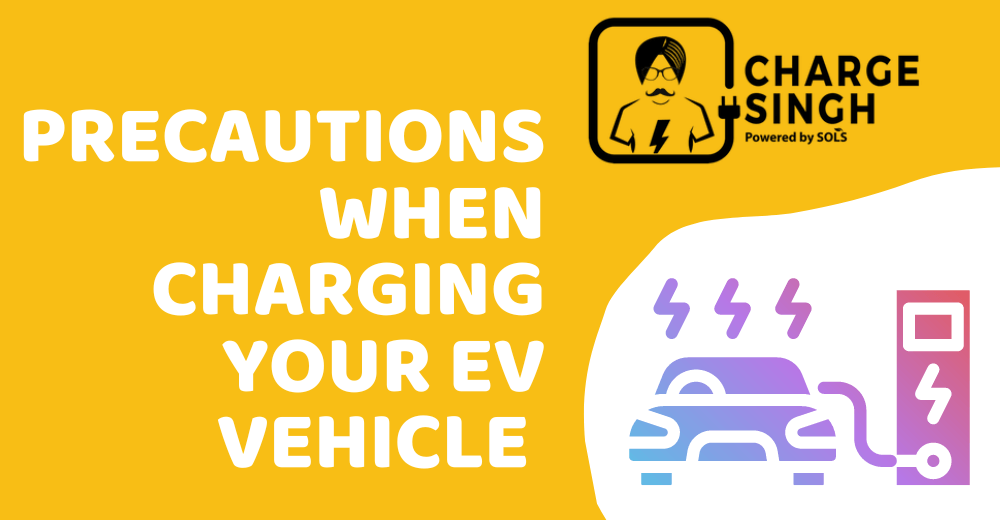New owners of electric vehicles (EV), or maybe even existing owners, may not be aware of the proper process of charging an EV. So, what are the things EV owners need to know when charging their electric cars and how can they do it safely?
First and foremost, EV owners need to know the basics of charging electric cars. This begins with knowing the type of batteries EVs use and following the manufacturers guide.
EV Owners Must Know Their Cars
Before even plugging a charger into your vehicle, EV owners must be aware of the following:
1. Battery Type & Size
It is important that EV owners are aware of what type of battery their car uses to make it easier to follow charging guidelines and know what measures to take when doing so. Battery size is to estimate how long it requires to charge.
2. Charging Levels
EV owners must know the different charging levels that can be used for their vehicles. There are three different charging levels for EVs:
- Level 1
Charging uses a standard 120-volt outlet which can be used for a daily commute of 40 miles on average where the battery can be charged and replenished overnight and takes 40-50 hours to charge from empty. - Level 2
A 240-volt outlet for charging in which it is essential for charging equipment to be bought and installed. The Level 2 charger allows the vehicle to charge within less than 2 hours for a 40 mile daily commute and 6 and half hours to charge from empty. - Level 3 (DC fast charging)
An 480-volt outlet which allows EVs to be charged 10-20 miles per minute. However, it can only be done at public charging stations as DC chargers cannot be installed in homes. It’s also important to remember the type of cable that is used before plugging in the charger to your vehicle. DC fast charging is only to be used for electric cars and not hybrid cars.
Safety Measures to Be Taken
Apart from knowing your battery type and what level of charging your EV needs, these tips offer some of the best practices to preserve the battery life of your electric car.
Tip #1: Take note of car battery percentage
Similar to a smartphone, it’s pivotal that EV owners monitor the battery percentage of their cars before charging it. But unlike a smartphone, the battery percentage of an EV should remain above 20%, but below 80%. This is to ensure that the battery is not being overworked and the damage is minimized.
Tip #2: Avoid fast charging when you can
Fast charging should only be used when traveling long distances where charging stations are limited. This is because when fast charging is used too frequently, it can affect the chemicals in the battery causing the battery capacity to decline at a faster rate.
Tip #3: Always use a heavy duty outlet
EVs should always be charged using heavy duty outlets. The reason behind this is because much more power is needed to charge an electric car and it will generate a lot of heat on thinner or long extension wires; regular extension cords simply do not have the capacity to do the job. Therefore, using regular extension cords could give you an electric shock and even start electrical fires.
Tip #4: Purchase certified charging cables from authorized retailers and manufacturers
When purchasing charging equipment, it is important that the equipment is purchased from retailers and manufacturers that are authorized. By doing so, you can avoid using cheap and faulty equipment and help to ensure the safety of both you and your electric car.
Tip #5: Make it a habit to check your battery
Your EV battery temperature needs to be checked regularly. Ensuring that it does not overheat is of utmost importance as it can affect the battery’s charging performance. The vehicle needs to be used regularly, even if used for short distances, to ensure that the battery health does not decline.
Caring for Your Car the Right Way
To further enhance your EVs battery life, here are some things that EV owners should avoid at all cost:
1. Avoid charging right after driving
Most EV owners, especially newer ones, often charge their vehicles immediately after using them. However, this should be avoided as the engine of an EV needs time to cool off. Allowing a buffer will help to preserve the battery health of the vehicle and increase its lifespan in the long run.
2. Avoid charging EV overnight unattended
EV owners need to ensure that their vehicles are not plugged in and left to charge overnight without being monitored. This is to prevent the EV from being overcharged and damaging the battery health, as well as the charging equipment used.
3. Avoid self-installation
When installing a charging station at home, it is vital that EV owners hire professional installers to do the job. This has to be done in order to prevent mistakes made during installation, which could potentially lead to dangers such as electric shock and electrical fires.
ChargeSingh works towards providing Greentech to their customers for a greener and more sustainable planet while prioritizing the safety of their customers. Ensure safety with professional installation of EV home charging stations today!


